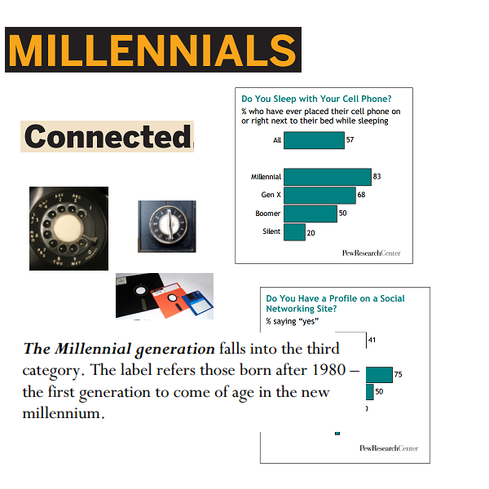Apple Lets Users Reject U2Apple Lets Users Reject U2
Apple iTunes users who don't want U2's free album, "Songs of Innocence," can now be rid of it.

10 Tech Terms Millennials Don't Know
10 Tech Terms Millennials Don't Know (Click image for larger view and slideshow.)
Apple has decided to allow iTunes users to reject the free music that it recently forced upon some of them.
Last week, following the launch of the company's iPhone 6 and iPhone 6 Plus and a preview of the forthcoming Apple Watch, Apple announced that it would make "Songs of Innocence," the latest recording from Irish rock band U2, available exclusively to its 500 million iTunes account holders. The album is available free to iTunes account holders during a five-week period prior to its public release on Oct. 14. The band played one of the songs from the album live at Apple's event.
Apple said it "is gifting" the songs to iTunes account holders. For some iTunes users that meant the songs were available and could be downloaded at their discretion. For others, specifically those who had activated Automatic Downloads in iTunes' Store Preferences menu, that meant the songs were pushed to their device as if they had been purchased.
[Learn more about the U2 Album Giveaway: What's Apple's Angle?]
Apple senior VP Eddy Cue said in a statement to the Associated Press on Monday that 33 million iTunes account holders have accessed U2's "Songs of Innocence" in the six days the album has been available. That figure includes downloads and access via streaming, through iTunes Radio.
Though not as egregious a violation of device sovereignty as Amazon's 2009 deletion of two George Orwell books from customers' Kindles, Apple's non-consensual commerce didn't please everyone. Dozens of users on Twitter likened U2's files to malware. "My Mac is infected with some crazy new malware that causes iTunes to download a U2 album," said security researcher Nik Cubrilovic in a tweet last week. Several technology publications subsequently reported on the grumbling percolating through social media channels.
Users had the option to delete individual songs from their devices, but they could remove the songs from their iCloud account only if they were also subscribers to iTunes Match, Apple's paid music service. Non-subscribers can only hide purchases, not remove them.
On Monday, Apple took corrective action, at least as far as U2's songs are concerned. The company posted a support webpage with a "Songs of Innocence" removal link that opens the iTunes application.
"Once the album has been removed from your account, it will no longer be available for you to redownload as a previous purchase," Apple said on its website. "If you later decide you want the album, you will need to get it again. The album is free to everyone until October 13, 2014, and will be available for purchase after that date."
Today's endpoint strategies need to center on protecting the user, not the device. Here's how to put people first. Get the new User-Focused Security issue of Dark Reading Tech Digest today. (Free registration required.)
About the Author
You May Also Like






